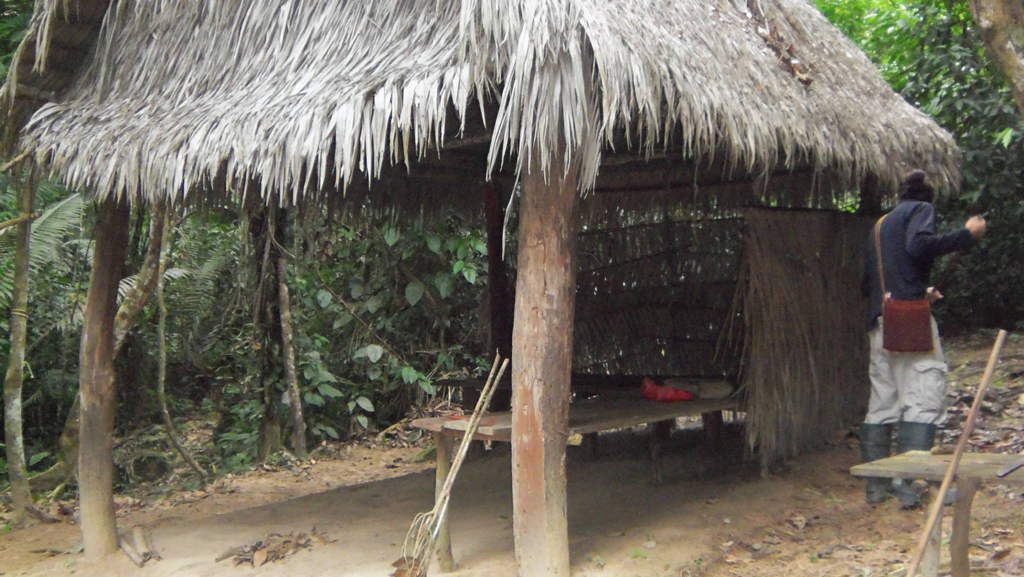Prelude: In Isolation circa 2013
The quiet evening song grows into a cacophony of noisy nocturnal dwellers as the inky darkness of the waning moon takes hold of the densely vegetated landscape of the Peruvian Rainforest. Hayy is alone in a tambo or a choza (Quechua terms for huts used for living in isolation during plant fasts) that has four thick wooden posts, a thatched hut made of leyarina (a type of palm leaf), and a foam mattress placed on top of a wooden platform with a mosquitero (mosquito net) around it. No walls and no floor, just the open air and sandy jungle soil.
A machete remains by Hayy’s side for the twenty days of his isolation as a kind of mental comfort for fear of some kind of unexpected animal attack, but it turns out that though it is useful as a weight to hold down the mosquitero and as a tool to clear dense vegetation on hikes during the day, it isn’t used for much else. Apart from water from a nearby stream and food (boiled green plantains and rice without any seasoning) delivered once a day by the curandero’s apprentice, the most important thing to Hayy unexpectedly turns out to be tobacco. To mark territory against animals (and spirits, as the natives would say), to drive away hornets that had made a nest close to his bed, to deter little gray scorpions seeking shelter on the platform Hayy’s bed was on during rainstorms, as mosquito repellent, as anti-itch salve, antiparasitic tea, mouthwash, and yet also, according to the almost all native Amazonian cultures, tobacco is used as a way to amplify prayers and intentions.

